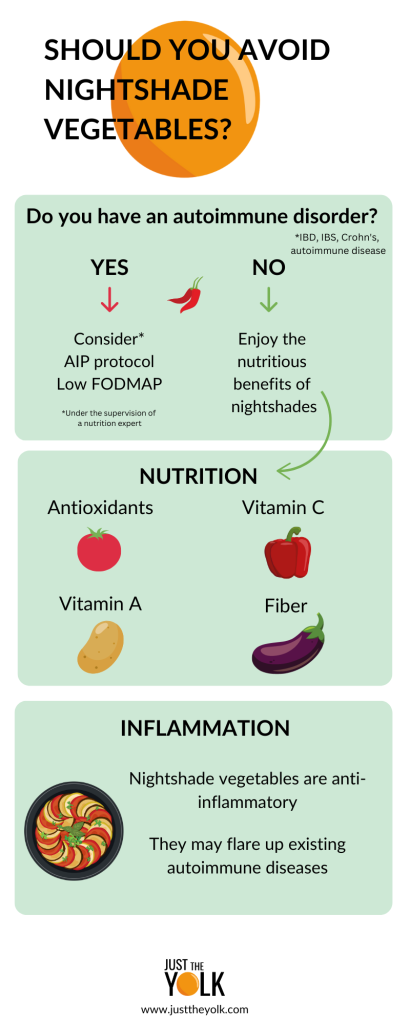Should You Avoid Nightshade Vegetables?
The Yolk
Which vegetables are “nightshade”?
- White potatoes
- Tomatoes
- Peppers
- Eggplants
- Okra
- Paprika
- Cayenne
The confusion around nightshade vegetables
- Diets addressing “leaky gut” eliminate nightshades
- Autoimmune protocol (AIP) – due to chemical compounds and their effect on the intestinal lining for people with autoimmune disease and allergies
- Low FODMAP – to relieve inflammatory bowel disease and protect the intestines
- Some people report arthritis flares after eating nightshades
- Solanine
- A poison present in nightshade vegetables’ stems and leaves (we don’t eat these)
- Also in green potatoes and potatoes beginning to sprout
- All lead to inflammation, where the immune system flares up and shows up in many ways:
- Joint pain
- Fatigue
- Abdominal pain
- Skin rashes
- Digestive issues
- Anxiety
- And many more
Studies on inflammation and nightshade vegetables
- Anti-inflammatory effects are common among nightshades
- Inflammatory effects show up in existing disease
Nightshade vegetables are nutritious
- Many vitamins and minerals
- Fiber
- Antioxidants
Perspective
- Tomatoes, eggplants, peppers are recommended on an anti-inflammatory Mediterranean diet
- There is no reason to avoid vegetables, unless you have an intestinal condition and are exploring cures/relief
- Refer to physician or dietician
- It is possible to be sensitive to nightshades -but other foods are likely more common
- The studies showing anti-inflammatory effects likely exclude those with existing conditions
- Don’t eat green potatoes
Research & Resources


